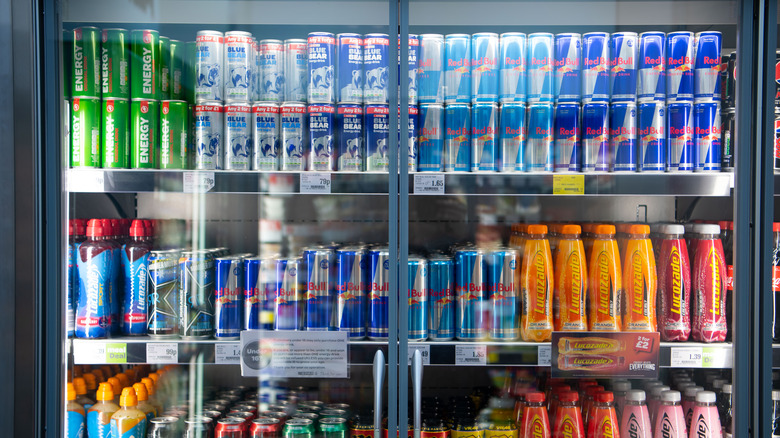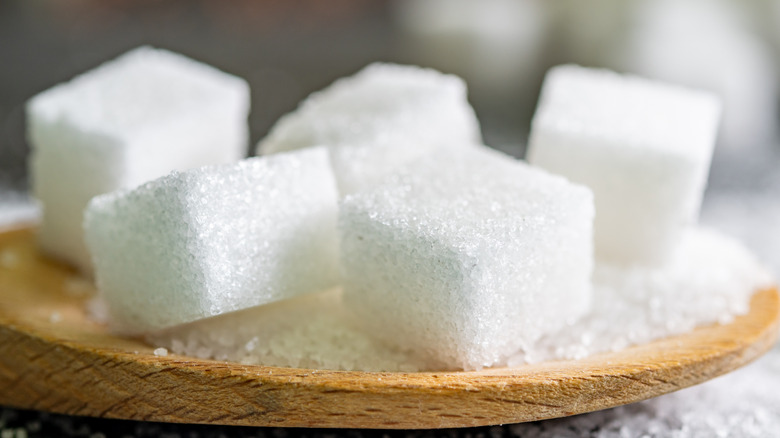Are Energy Drinks Bad For Your Liver?
From late nights at the office to cramming for a big exam, sometimes, we need more of an energy boost than usual. Energy drinks are a popular alternative to a cold brew or a hot latte, but are they bad for your liver?
The liver is an overlooked yet mighty organ, responsible for over 500 essential body functions (via the University of Michigan Health). It really does deserve some praise — it processes every single food and drink we consume, filtering out toxins after food is digested and absorbed into the bloodstream. It removes sugar, or glucose, from the blood after we've digested a meal. It then stores it as glycogen, which can be converted back into glucose if our blood sugar is low. It also produces bile to break down and absorb fats, produces blood during fetal development, knows when to use or store iron, releases the proteins needed to clot the blood, and holds up to 13% of our total blood supply. Furthermore, the liver rightfully takes up space in the abdomen — it's a whopping three pounds and the size of a football!
Your liver is affected by excess sugar and alcohol
Energy drinks are high in ingredients that need to be processed by the liver, putting extra strain on the organ (via Livestrong). They're usually very high in sweeteners, like fructose and high fructose corn syrup, with an amount comparable to soda. Research has shown that people who drink one sugar-sweetened beverage a day are more at risk of developing fatty liver disease, which is when fat accumulates in the liver and can lead to scarring and liver damage.
Sometimes, energy drinks are also combined with alcohol, like ordering vodka and Red Bull at the bar. This can be dangerous, since combining a depressant (alcohol) with a stimulant (caffeine) can mask the effects of intoxication, leading you to drink more without realizing how much you're consuming. Since the liver is responsible for breaking down all of the alcohol we consume, this can make it particularly susceptible to the health effects of excess alcohol consumption, including fatty liver disease and cirrhosis.
While there's a lack of research on energy drinks and the liver, it's best to limit your consumption or avoid them altogether if you're worried about the impact on your health. Additionally, children and adolescents should avoid energy drinks.


